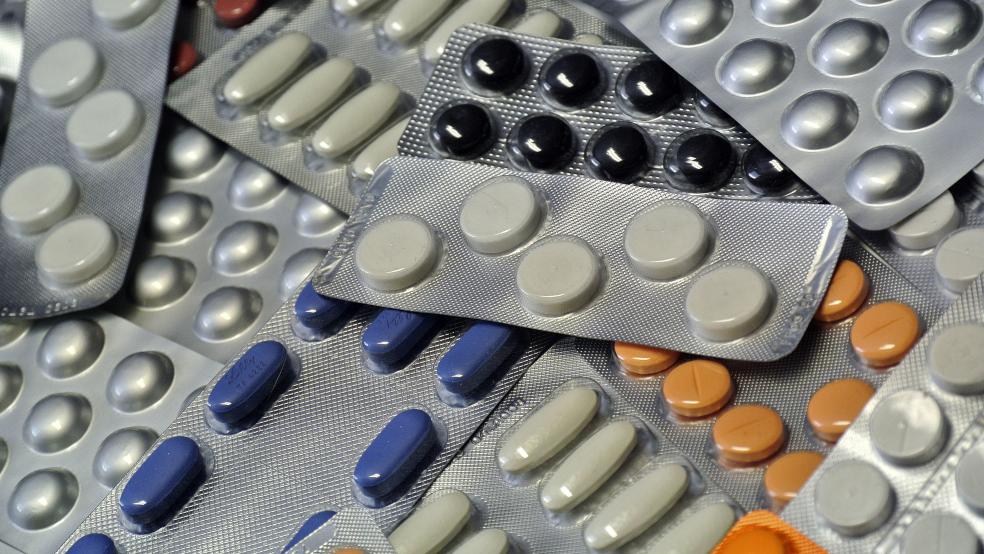Major pharmaceutical companies have been feeling intense political heat in the past year over skyrocketing drug prices, with some lawmakers and politicians threatening congressional or administrative action to rein in those costs.
Ironically, federal and state authorities that had been aggressively investigating drug companies for fraudulent pricing practices, overcharging Medicaid and Medicare, and unlawful promotions of drugs have curtailed their criminal and civil actions in recent years, according to a new study by the consumer advocacy group Public Citizen.
Related: The Feds Finally Make a Move on Soaring Drug Prices
Public Citizen has monitored pharmaceutical Industry criminal and civil actions and penalties for the past quarter of a century, between 1991 and 2015. During that period, 373 settlements were struck between federal and state authorities and major drug manufacturers, totaling $35.7 billion.
The Justice Department pursued violations of the federal False Claims Act and overcharging or bilking the Medicare and Medicaid health care program; the Federal Trade Commission cracked down on price rigging schemes between manufacturers of brand name and generic drugs; and state agencies investigated an array of suspected violations.
Yet financial penalties dropped significantly since 2013, researchers discovered, with federal and state authorities recovering just $2.8 billion in penalties in the most recent two-year period. That is less than a third of the $9.9 billion in penalties imposed in 2012 through 2013, and the lowest two-year total since 2004-2005.
The sharp drop in penalties in 2014 and 2015 was due largely to a decrease in the size of federal settlements of unlawful promotion of drugs for purposes other than those approved by the Food and Drug Administration – so-called “off-brand” or “off label” use. Federal financial penalties associated with those cases plummeted 90 percent, from $2.8 billion in the 2012 to 2013 period to just $263 million in 2014 and 2015. “The combined total for these latter two years was lower than that for any single year since 2006,” according to the report. During that period, federal criminal penalties shrank from $2.7 billion to just $44 million.
Related: Extreme Rise in Some Drug Prices Reaches a Tipping Point
Explanations for the sharp decline in federal and state settlements are legion, and range from the shifting priorities and focus of the Justice Department and FTC, to changes in drug companies’ marketing strategies to a move by the pharmaceutical industry to bolster its compliance procedures to avoid being hit with billions more in penalties.
“We don’t really know why there was a drop,” Sidney M. Wolfe, a physician and one of the three authors of the report, said in an interview Thursday. “It may not be one thing, it may be multiple things. But the net impact of these factors is that it’s going down, and fairly significantly in terms of the size of the penalties and the number of settlements from the states.”
Wolfe and the other authors of the report argued that major drug companies cynically view these penalties as little more than the cost of doing business, and that a renewed government effort at enforcement is essential in ferreting out often highly sophisticated illegal marketing and government contracting practices.
“Financial penalties pale in comparison to company profits, with the $35.7 billion in penalties from 1991 through 2015 amounting to only 5 percent of the $711 billion in net profits made by the 11 largest global drug companies during just 10 of those 25 years,” the report states. At the same time, consumers are unwittingly gouged by the drug industry by schemes in which major brand-name drug companies secretly pay generic drug companies to delay bringing new products on the market that would compete with them. By one estimate, this “pay to delay” strategy costs consumers $3.5 billion a year in additional drug costs.
Related: Extreme Rise in Some Drug Prices Reaches a Tipping Point
The Pharmaceutical Research and Manufacturers of America, the industry trade group, said in a statement yesterday, “We are disappointed at the report’s misleading conclusions.”
“Biopharmaceutical companies are committed to legal and ethical conduct that serves the best interests of patients,” the group said. “The report makes scant mention of the tens of millions of dollars companies spend annually to develop and maintain state-of-the-art legal compliance programs.”
“Among its many methodological flaws, the report aggregates all settlements involving the pharmaceutical industry, with little regard as to whether the companies actually broke the law,” the industry statement added. “Civil settlements rarely resolve the question of guilt. Yet the report glosses over its own finding that 88 percent of the settlements reported were civil, not criminal.”
The Public Citizen report noted that “to our knowledge” a parent drug company has never been barred from selling pharmaceuticals to Medicare and Medicaid for illegal activities. Nor has any senior drug company executive ever been sentenced to jail for heading companies found to be engaging in illegal activities.






